College of Human Sciences
Unisa hosts symposium to champion Black African women's role in liberation and scholarship
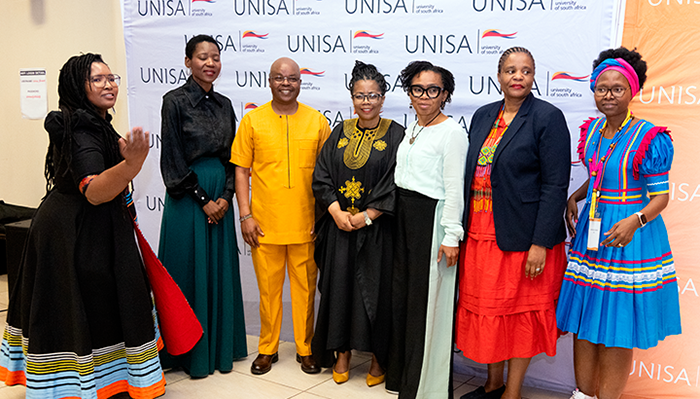
Dr Sandiswa Kobe, Prof Puleng Segalo, Prof Bosire Onyancha, Prof Puleng LenkaBula, Prof Grace Khunou and Dr Thulile Shandu-Phetla
The College of Human Sciences (CHS) at Unisa has marked a historic milestone in its transformation journey with the successful hosting of the inaugural WOMANDLA Symposium, themed "Black African Women’s Contributions in the Struggle for Justice and Liberation in Africa".
Held on 2 and 3 October 2025 at the Unisa Muckleneuk Campus, the event was a powerful convergence of intellectual voices, historical reflection and a call to reshape the academic landscape to centre African women’s lived experiences, knowledge systems and leadership.
The symposium was spearheaded by the Office of Graduate Studies and Research, under the leadership of Prof Bosire Onyancha. It formed part of the college’s ongoing Women in Research (WiR) initiative, a response to the systemic underrepresentation of women in research and a commitment to inclusive academic transformation.
The event attracted renowned scholars, activists and leaders. Among the keynote speakers were Dr Bibi Bakare-Yusuf, a globally recognised scholar and publisher, and Prof Madipoane Masenya (Ngwan’a Mphahlele), a pioneer in African feminist biblical hermeneutics. Their keynote addresses were met with deep engagement and powerful reflections from respondents Prof Grace Khunou and Dr Sandiswa Kobe.
Unisa’s Principal and Vice-Chancellor, Prof Puleng LenkaBula, was also in attendance, affirming the symposium's strategic significance in advancing gender equity and epistemic justice, as well as the university’s transformation agenda.
A platform rooted in Ubuntu and African epistemologies
The symposium unfolded against the backdrop of the CHS’s guiding philosophy of Ubuntu – a commitment to community, human dignity and co-existence. With strong roots in Bosadi theorisation and African womanist epistemologies, the symposium recognised that Black African women’s contributions to liberation movements, historically and presently, are foundational to justice, knowledge production and societal well-being.
The event brought together scholars and practitioners from diverse fields, including philosophy, law, the arts, business, health, psychology and technology. Interdisciplinary panels explored topics ranging from spiritual resistance and decolonial knowledge systems to gendered violence and the politics of visibility in the academy.
Addressing systemic barriers to women in research
The WOMANDLA Symposium follows the First Annual Assembly of Women Researchers (2024), which highlighted key challenges facing women researchers in CHS, including excessive teaching loads, limited mentorship, difficulties accessing research support and the marginalisation of women with disabilities. This year’s symposium built on those conversations with clear objectives:
- Showcasing women’s research contributions across disciplines
- Fostering mentorship and intergenerational collaboration
- Highlighting structural barriers and proposing concrete solutions
- Amplifying the voices of women with disabilities
- Framing empowerment as a lived and resourced institutional practice
Living the mandate: From talk to tangible change
What distinguished the WOMANDLA Symposium was its refusal to be a ceremonial event. As repeatedly emphasised by speakers, this was not merely a platform to discuss women’s empowerment; it was a call to live it. As such, the symposium has already sparked a series of legacy projects that will ensure its impact is long-lasting:
- A special issue in a Unisa academic journal, dedicated to the themes and research presented.
- A book project titled Becoming: WOMANDLA in ODL, chronicling and celebrating women’s scholarship.
- Strengthened mentorship networks for early-career and emerging women researchers.
- Institutional commitments to resourcing and supporting women-led research initiatives.
Igniting a movement
The success of the symposium was not only due to the robust attendance and high-calibre scholarship, but also to the spirit of collaboration and urgency that was reignited. New partnerships across colleges, universities, NGOs and other sectors have emerged, reflecting the symposium’s power to catalyse interdisciplinary and cross-generational work.
As CHS looks ahead, the WOMANDLA Symposium is poised to become a cornerstone of its academic calendar. In this space, Black African women’s knowledge, agency and leadership are not only acknowledged but centred.
"The liberation of the academy is incomplete without the liberation of women within it," said one of the speakers – a statement that echoed throughout the two-day event.
The WOMANDLA Symposium 2025 has declared: the time for transformation is not tomorrow, it is now.
* By Khabo Maduna, Communication and Marketing Specialist, College of Human Sciences
Publish date: 2025-10-29 00:00:00.0


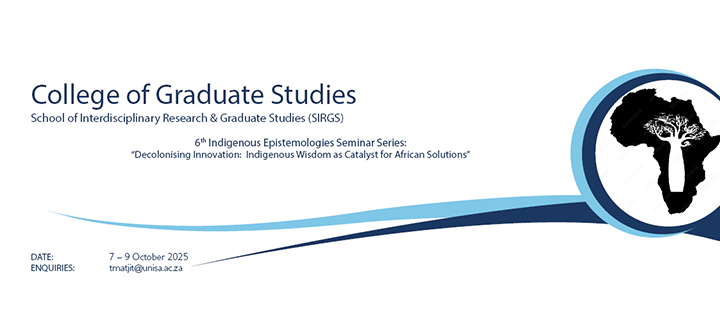 Decolonising innovation: indigenous wisdom as a catalyst for African solutions
Decolonising innovation: indigenous wisdom as a catalyst for African solutions
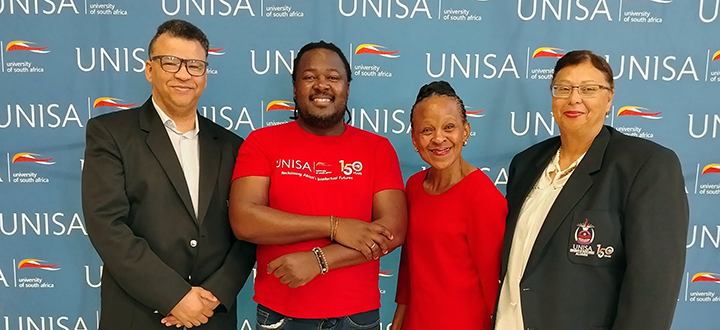 Unisa alumni inspire Elswood Secondary School learners to strive for excellence
Unisa alumni inspire Elswood Secondary School learners to strive for excellence
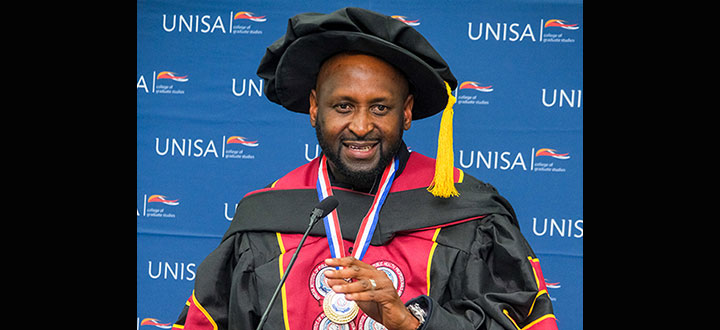 Unisa celebrates postgraduate and catalytic niche area excellence
Unisa celebrates postgraduate and catalytic niche area excellence
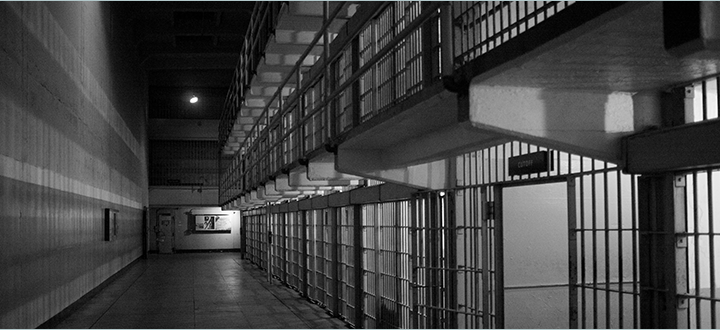 Mangaung inmate turns a leaf by obtaining a Unisa LLB degree with multiple distinctions
Mangaung inmate turns a leaf by obtaining a Unisa LLB degree with multiple distinctions
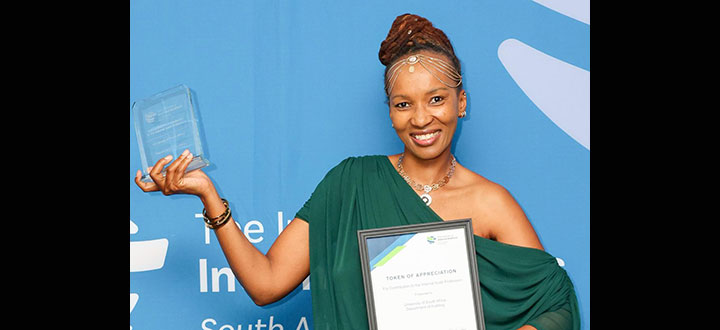 Another landmark achievement as IIA SA honours Unisa's Department of Auditing
Another landmark achievement as IIA SA honours Unisa's Department of Auditing